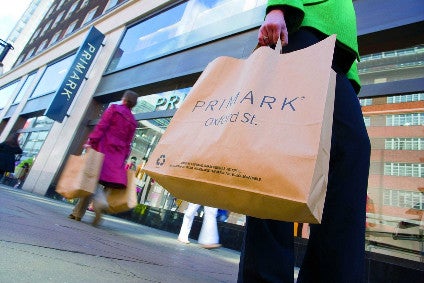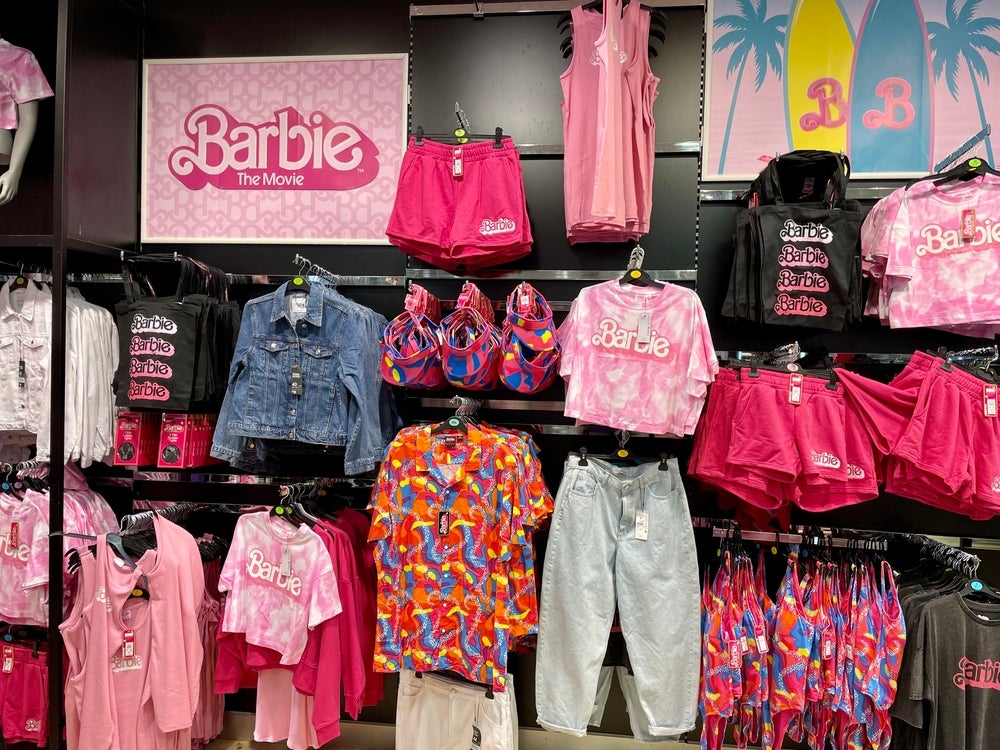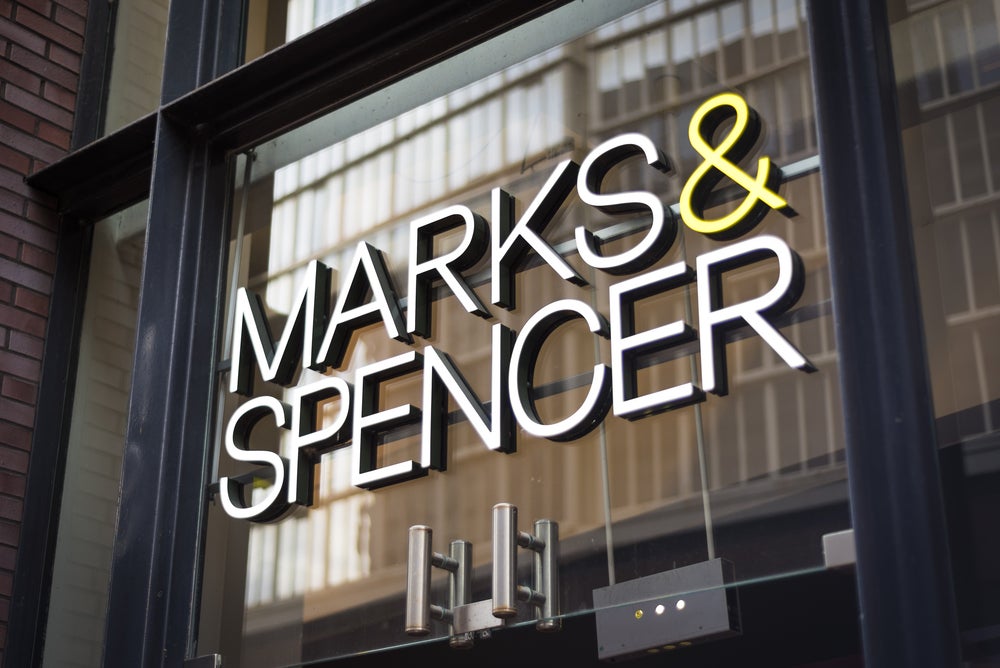
Value fashion retailer Primark has reported revenue of GBP3.7bn (US$4.5bn) for the first half, representing a 3.9% uptick in constant currency and a 2.2% rise at actual exchange rates. But the Covid-19 outbreak is set to drastically impact its performance for the rest of the financial year – and is likely to give Primark reason to rethink its bricks-and-mortar only strategy for the future.
Pippa Stephens, retail analyst at GlobalData
”Though Primark’s performance for H1 FY2019/20 once again displays impressive revenue growth, particularly internationally, the outbreak of Covid-19 will drastically impact its performance for the rest of the financial year, with all of its stores forced to temporarily close by the end of March.
“UK like-for-likes remained challenging throughout H1, down 1.7%, whereas Eurozone like-for-likes were marginally positive at 0.2%, driven by strong performance in France and Italy,” she says. “Following its return to normal trading, Primark must shift its focus from opening new sites to making improvements to its existing UK store estate, through greater roll-out of its experiential features beyond just flagship locations, and the refurbishments of older stores, to regain footfall.”
Stephens adds Primark’s lack of a transactional website means that it has no way of making up the GBP650m net global sales a month it usually makes through its stores, and so risks losing its position as the UK clothing market leader this year.
“The UK clothing and footwear sector’s online penetration is expected to reach 36.5% in 2020 due to widespread store closures, with the long term shift to online spending expected to be accelerated by Covid-19. While the retailer is confident that it has enough cash to remain resilient to the impacts of the pandemic, the unprecedented event will have likely given Primark reason to rethink its bricks-and-mortar only strategy for the future.”
How well do you really know your competitors?
Access the most comprehensive Company Profiles on the market, powered by GlobalData. Save hours of research. Gain competitive edge.

Thank you!
Your download email will arrive shortly
Not ready to buy yet? Download a free sample
We are confident about the unique quality of our Company Profiles. However, we want you to make the most beneficial decision for your business, so we offer a free sample that you can download by submitting the below form
By GlobalDataSee Also:
Meanwhile, as its stores are usually large and relatively crowded, Stephens says it is likely that Primark will be one of the last retailers to be allowed to open when governments start to ease lockdown restrictions.
She adds: “The retailer has voiced its dedication to keeping its staff and customers safe once stores do resume trading, even if that means ensuring there are fewer people shopping at any one time, which will inevitably impact sales. However, its value proposition will put it in good stead to quickly regain appeal, as economic uncertainty and increased unemployment rates will drive many consumers to trade down.”
Elsewhere, Stephens notes Primark’s ethical commitments amid the virus will be remembered by consumers, aiding its brand perception in the long term.
All of its directors have agreed to a pay cut to better support the rest of its employees, and the business has also recently donated 74,000 items to staff at London’s Nightingale Hospital, alongside contributions to hospitals across Europe.
“The business closure has had a knock-on effect to its suppliers, with Primark being forced to cancel all future orders. However, it committed to taking all product orders that were finished and due for handover before 17 April as well as paying for another GBP370m worth of stock, which is either in production or completed. It has also established a fund in Asia to support textile workers who have been affected by order cancellations. These actions will help protect the future of its supply chain, and will also strengthen its relationships, as suppliers will begin to prioritise retailers that have shown good faith amid the crisis, rather than players like New Look and Arcadia, which have been delaying payments.”
Darren Shirley, analyst at Shore Capital:
“Within Primark, management has guided to a GBP100m monthly cash outflow under current lockdown conditions, so we see the ABF Group as well-positioned to manage current economic and market challenges, particularly when set against some high street apparel peers.
“Indeed, we see Primark as an undoubted fixture of apparel retailing in the future when casualties are sadly abound around the world. The label’s strong value credentials should also stand it in very good stead for what we believe will be tough economic conditions, maybe on a sustained basis too. We also note management guidance as to the likely gradual nature of lockdown easing, making for shallower operating metrics at Primark, and we suggest retailing in general, for some time to come.”
Aneesha Sherman, Bernstein Research:
Sherman notes a “solid” half-year and final “clean” period before Covid impact. “Top and bottom line was in-line with consensus. Sales growth (+3% YoY) was driven by strong performance across businesses.
“With zero sales since the store closures on 22 March, all eyes are on cost-cutting. While stores remain shut, ABF assumes they can cut half of opex, though still amounting to cash outlfows of GBP100m/month. The largest component of opex is labour (68,000 employees furloughed with pending govt assistance). Some relief is expected from the removal of business rates in the UK and from rent negotiations with landlords. Currently there is no store re-opening timeline.
“Provision on inventory of GBP284m, equivalent to 20% of the current GBP1.5b inventory position, has been taken. Though we assume Primark immediately cancelled orders on 22 March, the long supply lead times mean that GBP0.6bn of stock was in transit already, which the company has paid for. They have also pledged to pay for partially completed stock (though timeline is unclear) that was intended for handover by 17 April.”
In terms of further liquidity, Sherman notes with cash on hand of GBP1.5bn today, Bernstein estimates ABF has spent about GBP0.3bn-0.4bn in the last month (including unreimbursed furlough wages of over 100m by our estimate). With a strong net cash position at the start of the half (GBP0.8bn) plus now a fully drawn RCF (GBP1.1bn) we expect Primark will have over a year of cover, assuming the other business operate as normal. ABF is eligible for the Bank of England CCFF, though this has not been drawn yet.
“No interim dividend, limited guidance. The final dividend will be reviewed at year-end. Primark guidance has not been given, but the rest of the businesses H2 outlook is unchanged, which should provide some relief and cashflow through the year.
“We have a positive read, given the liquidity cover for Primark and other business resilience.”








